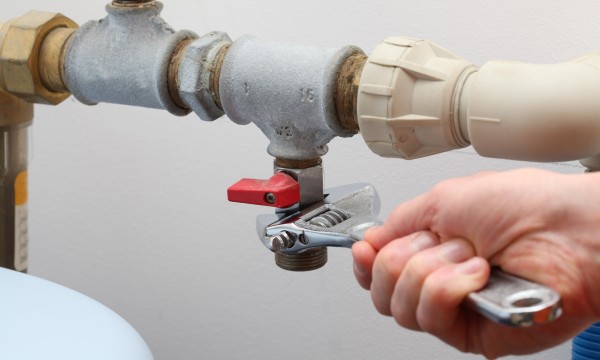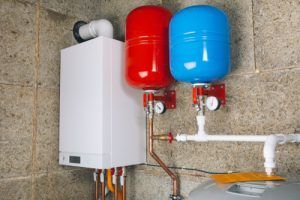Managing the Primary Water Heater Urgencies
Managing the Primary Water Heater Urgencies
Blog Article
Listed here below you will discover a good deal of extremely good resources in regards to Common Hot Water Heater Problems.

A water heater is among one of the most important fundamental devices that can be found in a home. With hot water heater, you do not need to go through the anxiety of home heating water by hand every time there is a requirement to take a bath, do the laundry, or the meals. There is constantly an opportunity that your water heating unit would act up as with many mechanical devices.
It is important to note any type of little breakdown and also tackle it quickly prior to points leave hand. Many times, your hot water heater begins to malfunction when there is a build-up of debris as a result of constant usage. As a safety measure, periodic flushing of your hot water heater is advised to avoid debris buildup as well as stop useful failure.
Usual water heater emergencies and how to manage them
Insufficient warm water
It may be that the water heater can not sustain the hot water demand for your apartment or condo. You can upgrade your water heating system to one with a larger capacity.
Fluctuating water temperature level.
Your water heating unit can start generating water of various temperatures typically ice cold or hot hot. There could be a need to change either the home heating or the thermostat unit of your water heating system.
Leaky hot water heater storage tank.
In this circumstance, you must turn off your water heating unit, enable it to cool down, as well as very carefully look for the source of the problem. At times, all you need to do is to tighten up a couple of screws or pipe links in situations of small leaks. If this does not work and the leak persists, you may need to employ the solutions of a professional for an ideal replacement.
Stained or odiferous water
When this happens, you need to recognize if the issue is from the container or the water resource. You are particular that it is your water heater that is defective if there is no amusing odor when you run cool water. The odiferous water can be caused by rust or the build-up of germs or sediments in the water heater storage tank. You can attempt flushing out your storage tank or replacing the anode if the issue lingers as soon as you notice this. The feature of the anode is to clean bacteria from your container. Given that the anode rod substitute requires a comprehensive expertise of your water heating unit, you will certainly need the help of a professional.
Final thought
Some homeowners disregard little caution and also minor faults in their hot water heater device. This just results in more damages as well as a possible total breakdown of your appliance. You need to manage your hot water heater mistakes as quickly as they come up to prevent even more costs and unnecessary emergency problems.
With water heaters, you don't need to go with the tension of heating water manually every time there is a demand to take a bathroom, do the laundry, or the meals. It may be that the water heater can not sustain the hot water need for your house. Your water heating system can start generating water of different temperature levels normally ice cold or scalding warm. If there is no funny odor when you run chilly water, then you are specific that it is your water heating unit that is defective. The odiferous water can be created by corrosion or the build-up of germs or sediments in the water heating unit storage tank.
Common Water Heater Issues and What You Should Do
What Type of Water Heater Do You Have?
Before we begin it’s first important that you identify the type of water heater you have on your property. There are two main types of water heaters out there: conventional and high efficiency.
Both of these types of products typically use either gas or electricity to heat power. There are also solar water heaters that use a thermal collector on the roof or yard to heat the water.
While these models are not as common, they can cut heating costs in half. In this article, we will focus on conventional and high efficiency.
How Do My Electric and Gas Water Heater Work?
Though they look similar, electric and gas water heaters work very differently. It’s important to know their basic function because often problems can be specific to the heating source.
In the electric model, a thermostat on the side of the machine detects the temperature of the water in the tank. When the temperature needs to rise electricity flows to a heating element suspended in the water.
Gas models also use a thermostat device — typically with a mercury sensor at the tip and an additional sensor called a thermocouple. The thermocouple detects whether the pilot light is on and controls the flow of gas.
When the thermostat drops below the appropriate level gas is released which becomes ignited by the pilot light. The flame heats the bottom of the water tank which causes hot water to rise and cold water to drop.
This natural circulation continues until the water reaches the desired temperature. Then, the thermostat triggers the gas control valve to shut off the flow of gas.
What Are the Most Common Issues and How Do You Fix Them?
https://happyhiller.com/blog/common-water-heater-issues-and-what-you-should-do/

I was made aware of that editorial about Common Hot Water Heater Problems from an associate on a different blog. In case you enjoyed our blog entry kindly don't forget to share it. I appreciate reading our article about Is Your Water Heater Leaking?.
Visit My Website Report this page